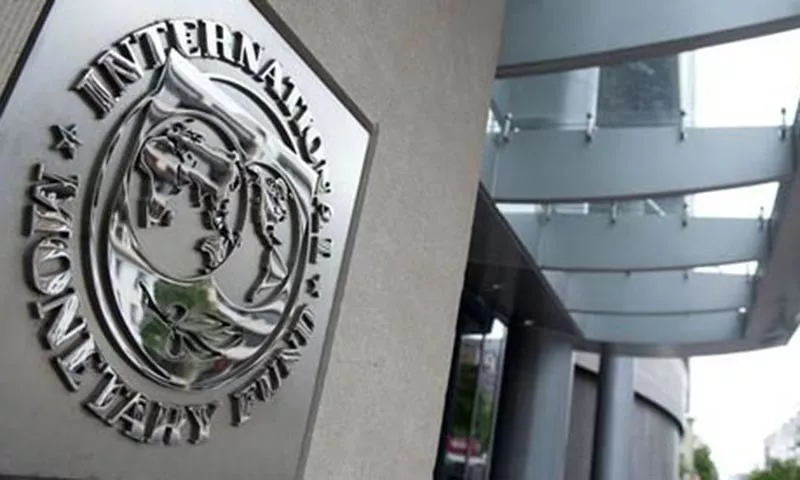IMF grants over Rs200b spending waiver to fight Covid
Executive board to give final approval this month provided Pakistan fulfils all agreed actions
ISLAMABAD:The International Monetary Fund (IMF) has granted over Rs200 billion spending waiver to create fiscal space for mitigation of the coronavirus contagion – an amount which is less than half of the remaining unspent funds committed under the Prime Minister’s Covid-19 Relief Fund 2020.
The over Rs200 billion fiscal adjuster is part of the staff-level arrangement agreed between Pakistan and the IMF this month, sources in the Ministry of Finance said. The agreement is subject to the approval of the IMF Executive Board that may meet this month, provided Pakistan fulfils all the agreed actions.
In its February 16 handout, the IMF had also said that Pakistan’s fiscal strategy remained anchored by the sustainable primary deficit of FY2021 budget and allowed for higher-than-expected Covid-related and social spending to minimise the short-term impact on growth and the most vulnerable people.
The IMF had also approved $1.4 billion emergency relief to provide fiscal space to Pakistan after the spread of the disease.
Due to over Rs200 billion waiver for spending on Covid-related measures, the sources said, the IMF has made some adjustments in Pakistan’s fiscal targets. There are no changes in the defence and development spending this fiscal year, the sources said, adding that the IMF has shown Rs578 billion development spending in this fiscal as against Rs650 billion budget.
However, the debt spending budget is expected to remain around Rs100 billion less than the budgeted amount, the sources added.
Despite these changes, Pakistan and the IMF are not showing any major changes in the overall budget deficit targets, the sources said.
In a mid-term report laid before the National Assembly this week, the Ministry of Finance said, “The half year fiscal position indicates that it will remain on track to meet the annual fiscal targets.”
They said that there was an understanding between the IMF and Pakistan that the government may book a budget deficit of more than 7.1% of the gross domestic product, but this may not be reflected in the Memorandum of Economic and Financial Policies (MEFP) document.
The sources said that both the sides were still showing the total expenditures of the federal and provincial governments at Rs10.4 trillion and revenues of around Rs7.2 trillion, reflecting a deficit of over Rs3.2 trillion.
The primary budget deficit –the total revenues excluding interest payments – is now projected at Rs322 billion or 0.7% of the GDP, the sources said. In the budget, the primary deficit had been shown at Rs248 billion or 0.5% of the GDP. However, these numbers could change in coming weeks.
In March last year, Prime Minister Imran Khan had accounted Rs1.21 trillion for the Covid-19 relief package. But the actual spending from the budget was Rs770 billion, which is now spent over a period of three years instead of the first year, as had been announced by the government.
The Rs540 billion – or a whopping over two-thirds of Premier Imran’s Covid-19 economic relief package had remained unspent till June last year.
Subsequently, in August last year, the Economic Coordination Committee of the Cabinet approved a supplementary grant of Rs540 billion during this fiscal year, ending in June, to provide room for the spending of the remaining sum.
The over Rs200 billion fiscal waiver suggests that the PTI government would not be able to fully utilise the Rs540 billion funds this fiscal year and the amount will spill over to the next fiscal year too.
During the first half of this fiscal year, an amount of Rs116 billion has been provided to combat the pandemic from the revalidated Economic Stimulus Package, the Ministry of Finance told the National Assembly this week. This brings the total spending under the Covid-19 package to Rs356 billion or just 46% of the cash component of the package.
The finance ministry said that Rs25 billion were given for procurement of vaccines and Rs64 billion under the Ehsaas programme in order to provide relief to vulnerable segments during the first half of this fiscal year.
There were 12 initiatives under the relief package and the lowest spending was against the relief package announced for daily wage workers and subsidies given through the Utility Stores Corporation, according to a report funded by the UK Aid.
Prime Minister had allocated Rs200 billion for daily-wagers but the actual disbursements remained at just Rs17 billion or 8.5% of the allocated amount, the report showed.
Similarly, the government had allocated Rs50 billion for providing subsidised goods at the state-owned Utility Stories and the actual spending was just Rs10 billion.
The government had also allocated Rs100 billion to provide temporary relief in electricity bills but the report showed disbursements remained at only Rs23 billion. The UK Aid-funded report showed another Rs33 billion disbursements were in process.


COMMENTS
Comments are moderated and generally will be posted if they are on-topic and not abusive.
For more information, please see our Comments FAQ